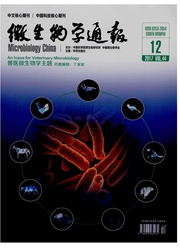

 中文摘要:
中文摘要:
细菌在油水界面粘附主要应用于烷烃污染的环境修复、石油开采与加工、食品加工等方面,其研究已经引起各界的广泛关注。本文基于XDLVO理论阐述细菌在油水界面的粘附机理;总结细菌表面特性、油相及水相性质对细菌粘附的影响;介绍细菌粘附作用在微生物驱油、生物乳化与破乳以及烷烃降解方面的应用,并对今后的研究方向提出展望。
 英文摘要:
英文摘要:
Adhesion of bacteria to an oil-water interface have been mainly applied to bioremediation of hydrocarbons pollution, oil exploitation and refining, food processing and etc. The related studies have aroused widespread interest among researchers. The paper firstly elucidates the mechanism of bacterial adhesion to oil-water interface, which is based on extended Derjaguin-Landau-Verwey-Overbeek (XDLVO) theory, and then the effects of cell surface properties, oil phase and water phase on bacterial adhesion. Finally, it introduces a few applications of bacterial adhesion in Microbial Enhanced Oil Recovery (MEOR), bioemulsification, biodemulsification, and biodegradation of hydrocarbons. The further research directions in this field are also proposed.
 同期刊论文项目
同期刊论文项目
 同项目期刊论文
同项目期刊论文
 Optimization of biodemulsifier production from Alcaligenes sp S-XJ-1 and its application in breaking
Optimization of biodemulsifier production from Alcaligenes sp S-XJ-1 and its application in breaking Relationship between surface physicochemical properties and its demulsifying ability of an alkaliphi
Relationship between surface physicochemical properties and its demulsifying ability of an alkaliphi Turbiscan Lab (R) Expert analysis of the biological demulsification of a water-in-oil emulsion by tw
Turbiscan Lab (R) Expert analysis of the biological demulsification of a water-in-oil emulsion by tw 期刊信息
期刊信息
